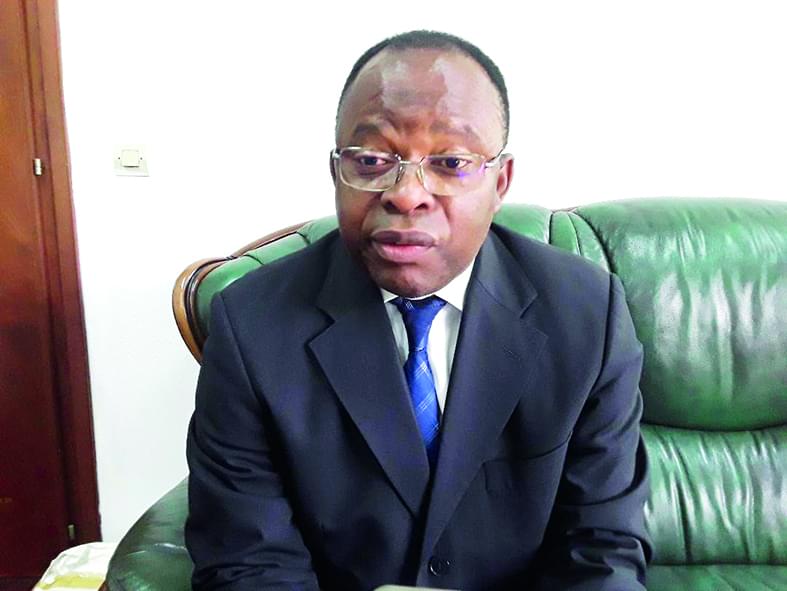
Professor Ngomo Horace Manga, Vice Chancellor of the University of Buea.
The University of Buea was created by Presidential decree in December 1992 and it recruited its first batch in the following year. As we speak, the University of Buea has recruited 9.700 students for this academic year (2019/2020), both freshmen and post graduates. That is an increase from last year’s admissions which stood at a little above 6.000. Even now, we are still carrying out some corrections for students who missed out on admission just because of some errors made at the level of the University. But the corrections will not alter the intake very significantly. As we speak, lectures are on-going. We will deliver on our principal mission of teaching, evaluation, certification, research and outreach activities. Quality assurance will be guaranteed. We always want to make sure that our graduates put at the disposal of the country, live up to expectation wherever they are engaged. We are glad that in the past years we have not had any serious recriminations from the industry and the utilising public about the quality of our products. I will also highlight the fact that the recruitment of 2.000 Ph.D. holders as lecturers instructed by the Head of State, Buea University was allocated 165. The initial allocation was 130 but we ended up having 165 because some others were found worthy of being recruited here still by the grace of the Head. He authorised that this supplementary number be added for this year. This is not as if the number is going to change from 2.000. It is that for this year, the demand was such that we had that allocation. What does this translate? This recruitment is going to reduce our dependence on part time teachers. I would like to tell you that high profile courses in Engineering like software, electronic and computer depended a lot on part time teachers. Even in the Faculty of Agriculture and professional programmes such as Banking, Finance and others. We are going to be relieved of that dependence on part time teachers thanks to the new recruitments. Before, our Lecturers used to teach far beyond their statutory hours. That inflated the amount of money we had to pay them for their extra hours. Our laboratories are experiencing higher quality. Through partnerships we have dynamic professors who through their own endeavours are able to benefit from equipment and even teacher mobility from other Universities who are going to come this year to ensure that the quality of teaching and course coverage for those very difficult courses where we experienced significant shortages of teachers for which even recruitment could not make up for. That is going to be handled.
Many have the impression that UB, as an Anglo-Saxon University, should tap and cooperate with older Universities in West Africa like Nigeria, Ghana and Sierra Leon by way of engaging visiting Lecturers to tap from their maturity in language and experience. What is your take on this?
A lot of people do not even know that the reputation our Faculty of Health Sciences has established in terms of training of Health personnel (Doctors, Nurses and Midwifes) comes from these inter-University partnerships that we have developed. Let me inform you that every year we have Professors from the University of Ibadan (Nigeria). They come to our Faculty of Health Sciences through exchange programmes and help us validate the quality of our teaching. It is not a question of mentorship anyway, but for the fact that if you want to ensure quality, you want comparability of courses and how these courses, these skills are transmitted to the learners. Let me also tell you that we had a partnership with the University of Arizona (USA) and Professors from there teach here. That partnership, however, ran into some difficulties for funding problems. We want to believe that will be re-established. The Professors themselves know that for a Faculty that is not full-bloomed in terms of all the courses that should be taught like dentistry and so on as specialties in the numbers required. Even if we had, it is the practice that whenever you train, you want to ensure comparability with others elsewhere.
During the recent recruitment of Ph.D. holders some part time Lecturers already working were not taken and it has caused a row in other Universities. Did you have any such cases here in UB?
By design and by practice we ensure that those who are senior instructors, by the fact that they have been teaching for about five years they necessarily have the experience. Let me not even go further, it may interest you to know that when we have an instructor we can be sure that they will make a good teacher. The point I should also make is that sometimes a Ph.D. holder recruited from elsewhere, with time we get to observe that they are not able to handle the course they are supposed to specialise in. Here, our habit is that once there is an employment opportunity we prioritise those who are already teaching the courses adequately. We did not have that problem here, the situation you mentioned elsewhere.
Talking about quality, every year UB’s best student presents a valedictory address. Does your University get to know where they go and what they do afterwards?
Those who have First Class, Second Class Honours generally find employment. When MTN, a few years ago, launched a competition on digitalisation of payment in MINESEC five of our students won everything. They came from our Department of Computer sciences.
What are your immediate needs to better up your campus?
We need infrastructure. Regarding Lecturers, the Head of State has handled that. We cannot complain in that area. But we are going to have 165 Lecturers and the question that comes to mind is where are we going to find them offices? But we are going to manage along. The most important is what they deliver as content.
The UB has only 100 rooms for lodging in campus, yet you have 9,700 students in campus. Is it not a problem?
That is what we found when we took over here, that the only lodging facility is for female students. Now, how many female students can it take? We should remember that this place started as ASTI, training school for Translators and Interpreters. As such, upgrading to a full-fledged University it did not see any need for expanding student accommodation. We made efforts in the past to have independent business actors to construct for us accommodation to handle this problem. It has not been successful because of the financial conditions they have to go through, which are necessarily linked to MINEPAT, to Ministries. These Ministries, too, have also to weigh their own options.
Have you any Security concerns here in the campus?
Security now on campus has greatly improved. Six months ago you would have experienced a great deal of tribulation crossing from Mile 14 (Dibanda) through Mile 16 (Bolifamba) right to our main gate. Now students attend classes easily. I believe that this academic year will be much better in terms of serenity with which people move around the campus.
What can the University of Buea benefit from the new special status that has been accorded the host Region of the South West?
My reading of the special status is that it is going to give the University greater visibility. The University is bound to become more innovative. We will need to train Local Government workers in every domain. This time their autonomy gives them greater responsibilities to handle things that used to pertain to the central administration. They will need financial experts. They need experts in Business development because they will be asked to develop their own projects. They need experts in Health, in education for which we already have Distant-Learning programmes. We will be called upon to develop a lot of teaching modules. The University will have to contextualise. Take an example! If a Council (Local Government) finds itself in an area where there are a lot of forest products, the University will definitely have to respond to that need. Take Health care, general infrastructure, Energy, the University will have to develop training modules and expand the training of Council workers who will handle those areas of need. The University will need to develop small hydraulic units. And he who says exploitation means funding, training of experts building the network and management skills.
Is there any other thing you would like to tell the public about your University?
Déjà abonné ?
Identifiez-vous >
Cet article complet est réservé aux abonnés
Accédez en illimité à Cameroon Tribune Digital à partir de 26250 FCFA
Je M'abonne
1 minute suffit pour vous abonner à Cameroon Tribune Digital !
Reactions
De la meme catégorie
En kiosque
Les plus Lus
- Development In Meme Division: Chiefs Express Gratitude 110
- Production de l’or et du diamant: Le pari de la traçabilité 106
- Inscription sur les listes électorales: Le Conseil électoral à l’abordage 113
- Artisanat: Les ambitions de 2026 98
- Transmission du VIH de la mère à l’enfant: Synergies africaines à l'Extrême Nord 104







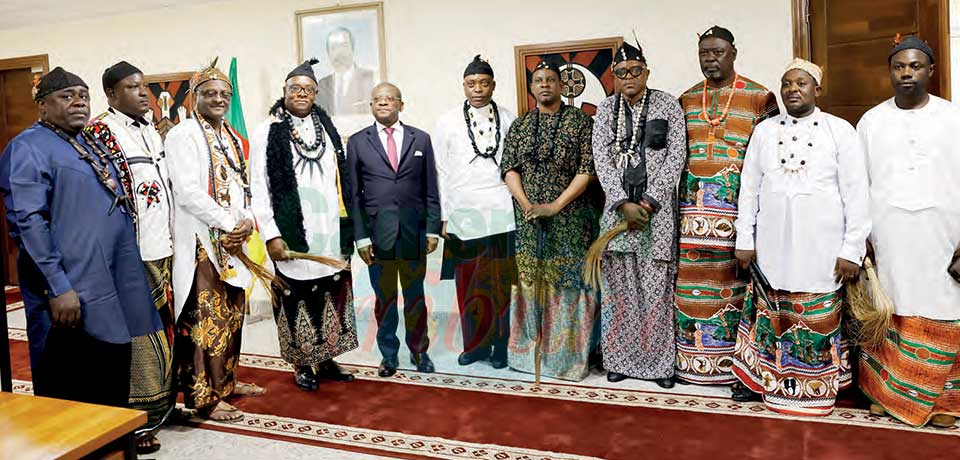
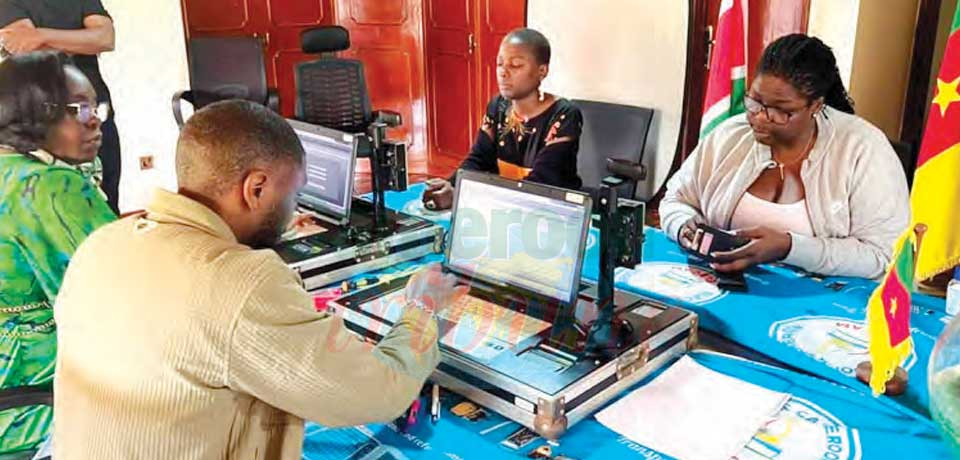
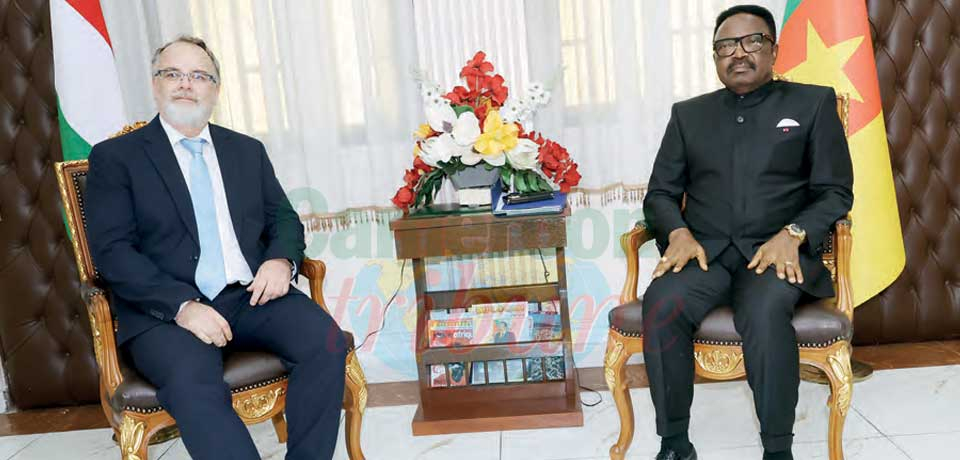
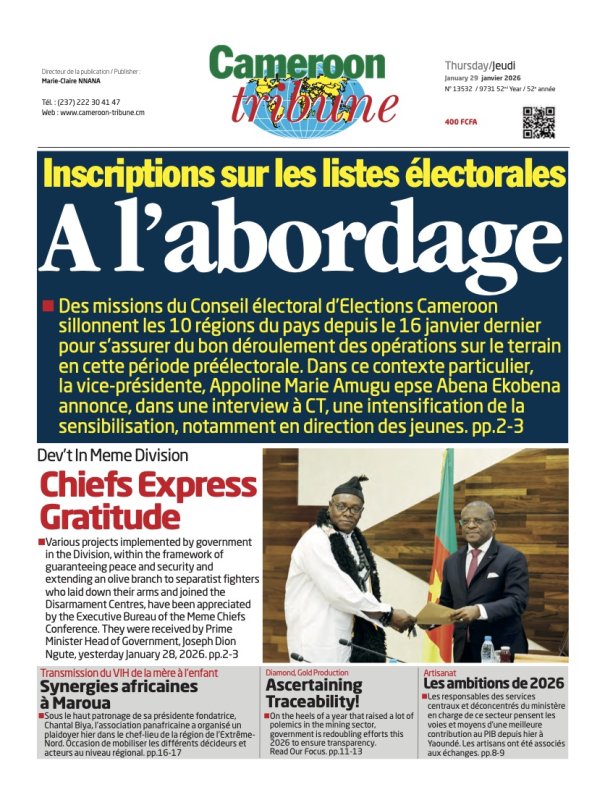




Commentaires